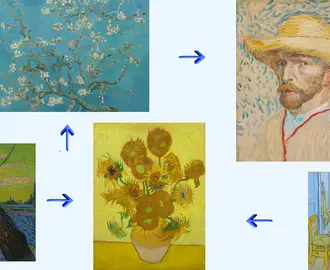Research
How to fight pro-Russia disinformation in Ukraine
Ukraine has been targeted with a large amount of pro-Russia propaganda. People with stronger analytic reasoning skills are better at identifying the disinformation, according to a new study.
As tensions increase between Russia and Ukraine, signs of this escalation are mostly plain to see, such as more than 100,000 Russian troops gathering along the Ukrainian border and both countries engaging in training exercises and appealing to allies.
Yet the large amount of online propaganda and disinformation flowing into Ukraine is less visible. Nearly 40% of Russia’s disinformation campaigns target Ukraine, according to a watchdog organization affiliated with the European Union. How do Ukrainians respond to pro-Kremlin falsehoods? Are some people better able to identify disinformation than others?
A new working paper by Aaron Erlich of McGill University, Calvin Garner of the University of Washington, Gordon Pennycook of the University of Regina, and MIT Sloan professor finds that Ukrainians with more analytical reasoning skills tend to be better insulated against Russian propaganda — even if they generally have pro-Russia sympathies.
The outcomes provide insight about how to identify groups that are vulnerable to false news and, potentially, craft interventions that help people detect disinformation.
As part of a larger study, the researchers spoke with nearly 11,500 Ukrainians in person and online in the spring and fall of 2019. During these interviews they measured individuals’ levels of analytic reasoning, support for Russia or the EU, and how much of a threat each interviewee considered Russia to be. The researchers also estimated how sociolinguistically aligned each participant was with Russia versus Ukraine.
Research participants were asked to assess the accuracy of 16 news stories, some false (with pro-Kremlin slant), and others objectively true, across a range of subjects — from politics and the economy to the military and culture. The researchers then examined the relationships between each participants’ evaluations of the news stories, their analytic reasoning proficiency, and their general disposition toward Russia.
Rand and his colleagues found that individuals who scored higher on the reasoning tests were better at discerning truth from falsehood — that is, they were more likely to rate false stories as false and true stories as true. The outcome held regardless of a person’s political stance on Russia and thus how motivated they were to believe this disinformation.
These results highlight the value of analytic thinking, note the researchers, and are of general use in the midst of a global “infodemic” in which misinformation is spread about things like COVID-19 and national elections.
The results also present a specific hopefulness in relation to a country like Ukraine, which possesses “a uniquely troubled domestic information space,” the researchers write. The country has relatively weak media institutions, and has been the subject of intense and prolonged information warfare. That the fundamental and straightforward skill of analytic thinking can buffer individuals against disinformation “speaks to the optimism we should have about further improving the information environment in countries such as Ukraine,” the authors write.
The results also suggest the possibility that gentle nudges toward more analytical thinking could serve as a prophylactic measure against false news, the researchers write, though the value of a step like this remains to be tested.
Read next: Study: false news spreads faster than the truth




